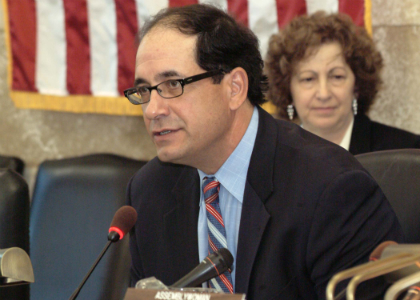
Bill Would Encourage Businesses to Provide Paid Internships
TRENTON – A bill sponsored by Senators Joseph F. Vitale and Jim Whelan which would allow companies which provide paid internships to qualified interns to claim a tax credit was approved by the Senate yesterday by a vote of 34-6, and received final legislative approval later in the day when the Assembly approved the bill 45-23, with 6 abstentions.
“Internship programs allow students to develop real-world experience in their chosen field, and allow employers to connect with potential new hires,” said Senator Vitale, D-Middlesex. “However, as a direct result of the global recession, higher unemployment and increased competition for fewer jobs, more and more businesses are turning to unpaid internships, which put middle class students paying their own way through school at a disadvantage. This bill would create a tax incentive to encourage more businesses to establish internship programs benefitting the most students possible.
“While unpaid internships still hold some value in terms of helping students develop the skills to be competitive in the job market, these programs fail to recognize the challenges that many working class college students face funding their education,” said Senator Whelan, D-Atlantic. “With the soaring costs of college tuition in the Garden State, and the high cost of living here, many students need to find programs that offer a paycheck as well as real-world experience. This bill would allow more hard-working college students a chance to develop their skills and pay their way through school at the same time.”
The bill, S-2373, would allow a company to claim a corporate business tax (CBT) credit or gross income tax (GIT) credit for certain wages paid to qualified interns in tax year 2012 and 2013. Under the bill, a qualified intern would be defined as an individual enrolled and in good standing at a New Jersey four-year institution of higher education, a New Jersey county college, or a New Jersey accredited post secondary business, technical, trade or vocational school, who is employed and supervised in a position that provides training and experience in their chose field of study. To be eligible for tax credits, businesses must pay qualified interns at least $8.00 an hour, and the term of internship must last at least 12 weeks and include a minimum of 14 hours of service per week.
The bill would provide that businesses could claim a credit of 40 percent of the compensation paid to qualified interns, or $600 of that compensation per year, whichever is less. Under the bill, a corporate taxpayer which employs three or more qualified interns in a tax year would receive a $75 bonus per intern. The bill would limit the combined credits under both the CBT and GIT to 5,250 qualified interns or 700 participating businesses annually, whichever threshold is triggered first.
The bill is modeled after a recently enacted program known as the Philadelphia Internship Tax Credit Program, and is intended to incentivize businesses in New Jersey to establish paid internship programs, rather than unpaid internships. If the program is maxed out, it would cost the State, at most, a little more than $3.5 million a year.
“The prevalence of internships as part of the regular college curriculum is growing, and according to recent studies, around 50 percent of graduating college students have completed an internship, with between a quarter to a half of those students receiving no pay for their work,” said Senator Whelan. “Internships hold value for both employers and employees, because statistics show that those who have performed an internship are more likely to be hired after graduation. A survey conducted by the National Association of Colleges and Employers, noted that employers indicated that while 31 percent of their new employees came from their own internship programs, 62 percent had internship experience of some kind.”
“This bill is ultimately about ensuring that New Jersey’s workforce have access to the training and skills to be competitive without opening up hard-working students to exploitation by employers seeking free labor,” said Senator Vitale. “Ideally, internships are a give-and-take experience, with students and employers receiving something from the program. However, we must make sure that all students can partake in internships, not just those who are financially well-off enough to be able take an unpaid internship.”
The bill now heads to the Governor to be signed into law.





